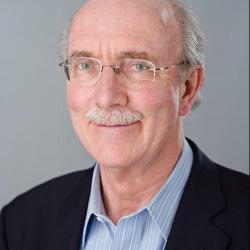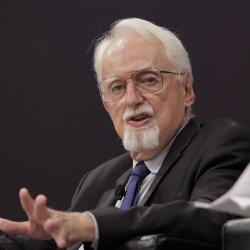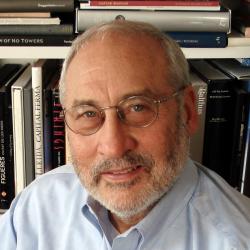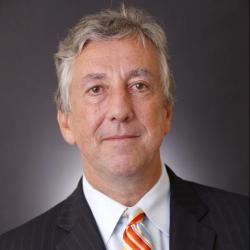A resounding success, the conference was held in Budapest at Central European University (CEU) from September 6th through the 8th and recruited a select group of about 50 top economists from around the world. The formal title was: “Toward an alternative macroeconomic analysis of microfoundations, finance to real economy dynamics, and crises.” It refers to three key areas that must be better explained by economic theory as part of the creation of a new paradigm of economic thinking to supersede the dominant paradigm for the last 30 years - market fundamentalism.
CEU President John Shattuck characterized the conference as an important step toward reformulating an economic paradigm in light of the recent crisis: “The real focus was on what needs to be done to make economics an enterprise that is consistent with reality. And the reality is that there are many different influences on economic decision-making, there’s a great deal of irrationality in the field of economics decision-making, there’s unequal information among different participants in the economic marketplace, and there’s been an assumption up until now - a very wrong assumption - that any kind of regulation or government intervention in the marketplace is counter-productive.”
Shattuck described the conference as a place where significant economists could meet to share their ideas:
“Imagine a room of 60 very prominent economists,” Shattuck said of the conference, “each of whom has lots of thoughts about what has gone wrong with the economy and what has gone wrong with economics. It was really each of them getting an opportunity to explore his or her perspective on what had gone wrong.”
True to the Institute’s mission, no singular perspective was put forth – instead, the conference allowed attendees to express their own views. According to Shattuck:
“‘Heterodox’ is an extremely important word here. Certainly there was no singular alternative perspective that was presented by the conference participants. It’s a very heterodox group with a variety of different perspectives on how economic behavior should be analyzed and ultimately addressed by regulation.”
The first day of the conference began by analyzing the incumbent theories that failed during the financial crisis that began in 2008 and continues in the current global economic slump. As part of that effort, participants looked at how far the crisis can be explained through the lens of what is being called “progressive new Keynesianism,” and analyzed macroeconomic policy management, particularly “conditional forecasting,” i.e. correctly anticipating the consequences of policy moves.
There were in-depth sessions with working discussions in three key areas that would make up an alternative microeconomic analysis. One is how macroeconomics can be better founded on microeconomics. Another is how econometrics and statistics about the real economy can better inform any new theory. And a third looked at complex dynamics in action, such as what happens in financial markets.
The conference ended by roughing out a research agenda and making practical steps informed by what took place in the previous days. According to Shattuck, out of the conference emerged the idea that people from more disciplines should be integrated in this discussion:
“One of the things that is under way is a follow-up conference that will be more disciplinary, and might involve people who are involved in network science, which is very directly related to economics, and perhaps also some physicists, who are engaged in probability and measurement of network science.”
“The future holds a more interdisciplinary discussion of the problems that we face, and more opportunity to bring people together who otherwise might be stuck in one or another silo of their own disciplines.”
Note: This page is not fully updated and will be further populated over time.



